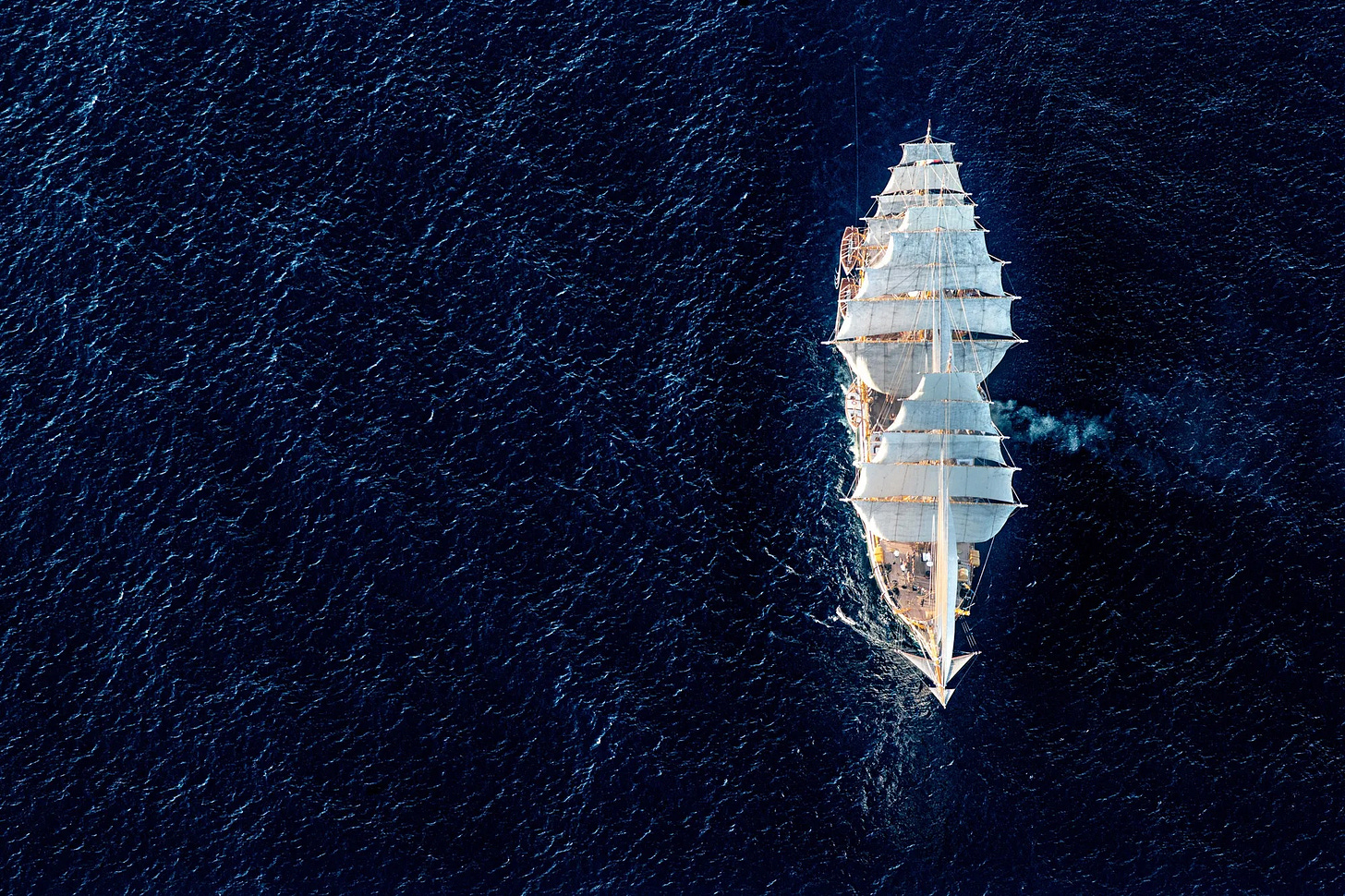becoming
trustworthy and immaterial
Hello. This post is about Death & Birds.
In 1930, the Italian Navy commissioned the construction of a full-rigged, three-masted ‘tall ship’ in the style of an 18th-century cannon ship. The vessel, the Amerigo Vespucci, was launched the following year. She has 26 sails spanning 30,000 square feet of canvas; her deck is polished teak, and intricate decoration adorns both bow and stern. In 1962, while sailing in the Mediterranean Sea, she passed an American warship called the USS Independence. The Independence signalled to the ship, ordering it to identify itself, to which the Italians responded, simply, “Amerigo Vespucci, Italian Navy.” There was a loaded pause before the warship replied, saying: “You are the most beautiful ship in the world.”



